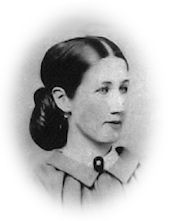Annapolis, March 20, 1864. — It is now over six months since I left Rappahannock Station for home, to take the position of lieutenant colonel of what was then to be called the 1st Veteran Volunteers from Massachusetts, but is now the 56th Massachusetts Volunteers. At the time I left the army I expected to be back again, with my regiment full, in the course of three months at the outside. I am now well satisfied at being here at all with my present rank.
When I reached home, matters looked badly enough for the regiment. Not a man enlisted, the recruiting, or rather attempts at it, having been going on for three weeks at least. My commission bore date of July 22, 1863, but I must say that for three or four months from that date, I had little expectation of ever being an officer in the United States service with that rank. I never should have taken the place, had not my old chum Harry Egbert persuaded me to do so.
Recruiting for our regiment began in reality about the first of November, under the call of October 17, 1863, for 300,000 men, stimulated by the promise of extra bounties from the State. It continued very fairly until about the first of March, when all our recruiting officers were called in. On January 2, 1864, I was mustered in as lieutenant colonel by Lieutenant Robert P. McKibben, 4th U. S. Infantry. The 4th of January, 1864, was my twenty-second birthday.
On Sunday, the 10th of March, 1864, after numerous false starts in accordance with the usual custom, the regiment finally started from Readville on its way to Annapolis. I was glad enough to get off, as the men were constantly deserting while in camp at Readville, and were all the time on guard or detailed, so that we could neither drill nor discipline them properly. The day before we started, over thirty gallons of liquor were confiscated on the persons of people coming to see their friends or relations in Readville.
[The passage in the diary describing the journey from Readville to Annapolis with the regiment is omitted, as that journey is described with more detail in my letter of March 25 to my father.]










